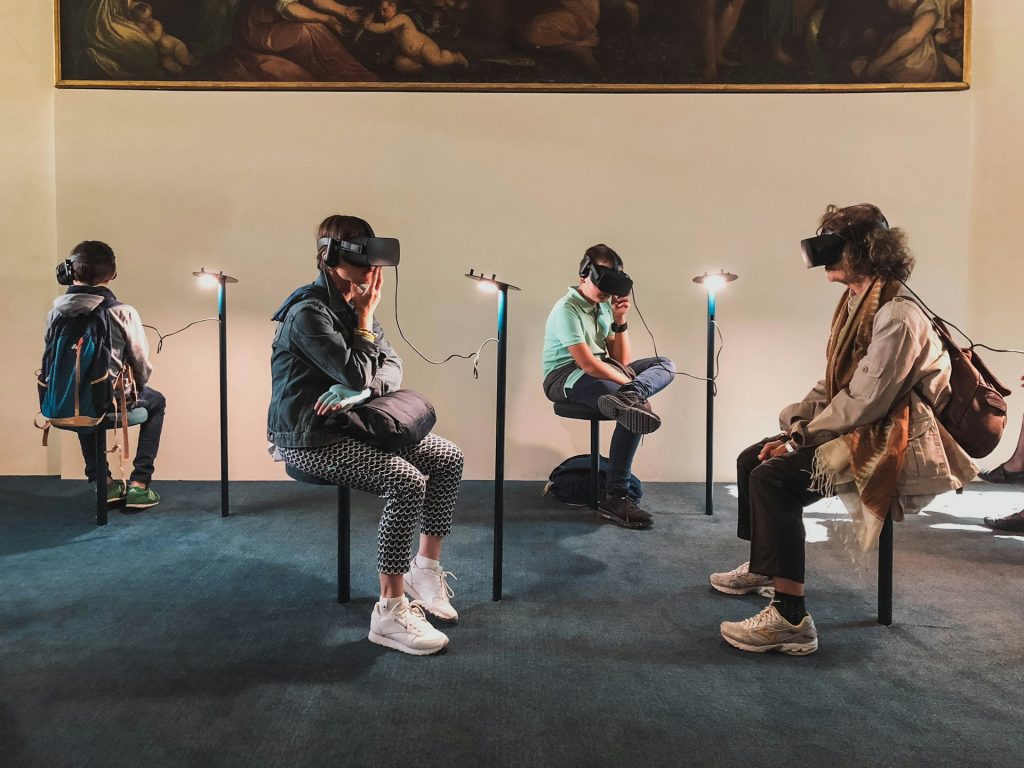Learning a new language can be an incredibly rewarding experience, and it doesn’t have to be difficult. With the right attitude and some patience, you can open up a world of new possibilities with your newfound skills. Here is a simple guide to learning a new language.
The Benefits of Learning a New Language
Learning a new language has many benefits, both mentally and professionally.
Mental Benefits
Taking on the challenge of learning a new language helps build cognitive processes, such as problem-solving, multi-tasking, and decision-making. It also gives you the opportunity to learn about different cultures and explore different points of view.
Career Advancement

Andrea Piacquadio / Pexels
Understanding more than one language can give you an edge when applying for jobs or promotions in fields such as international business, linguistics, education, medicine, and hospitality.
Culturally Diverse
With an understanding of other languages comes an appreciation for cultural differences. You will likely develop an increased tolerance for other beliefs and customs, which may influence your own perspectives on life and the world around you.
Getting Started
To get started on your language-learning journey, it’s important to consider your needs and goals, choose the right language for you, and use the right resources to get you there.
Step 1: Consider Needs and Goals
Determine what kind of language do you need to learn and why? Do you need it for a job or a professional setting? Is it for leisure or travel purposes? Having a clear goal in mind will help focus your efforts and keep you motivated in the long run.
Step 2: Choose a Language
Once you’ve determined what type of language you need to learn, consider which languages will best suit those needs based on usage in certain regions or familiarity with its grammar structure. Take into account what other languages you already speak and how similar they are to the one you plan on learning; this will also help make the process easier as it will be quicker for your brain to pick up patterns like syntax and pronunciation if they are similar to something you already know.
Step 3: Utilize Resources

Leeloo Thefirst / Pexels
After choosing the right language for yourself, gather all the necessary resources that you need; this could include textbooks, audio programs or videos, online lessons, apps, or even private tutors if available or preferred by yourself. You can even make use of online forums or communities with native speakers who are willing to help in your learning process by answering questions or helping with pronunciation issues; sites like LiveMocha allow users to connect with native speakers in order to practice conversations in various languages.
Step 4: Establishing a Study Plan
Once you’ve gathered all the necessary materials and have chosen your language, now comes time to create a systematic study program that suits your needs and lifestyle best; dedication is key when learning any new skill so make sure that your plan is achievable yet effective enough over time to yield results.
Dedicate Time
One of the most important parts of establishing an effective study plan is dedicating time each day/week for studying; it’s important that this time slot is consistent so that your brain can build better associations with patterns in the language being studied over an extended period of time; aim for at least thirty minutes per day but if this isn’t possible due to commitments try breaking up tasks into smaller chunks over multiple days - consistency is key!
Incorporate Variety

Pixabay / Pexels
Make sure each session includes variety so that everything learned is not only useful but also enjoyable; this could include reading articles/books in the target language or watching films/television shows in said language; listening exercises are also great when starting out as they help build familiarity with pronunciation patterns which then translate into better reading ability over time! Additionally, including some physical activity such as writing down words/phrases learned can help make them stick easier as well – especially when combined with other activities like listening/watching!
Utilize Technology
Technology has made learning foreign languages easier than ever; from bilingual dictionaries apps to digital flashcards filled with vocabulary words – modern devices provide users with powerful tools designed specifically for foreign language learners; utilizing these tools can help users stay focused during their studies as well as give them access to helpful content at any time - anywhere!
Step 5: Overcome Challenges
Learning any new skill can be difficult but don’t let small setbacks discourage you from pushing forward; instead, use them as opportunities to develop new skills that will better prepare you for future challenges! Developing mastery over a new language requires developing new skills; brush up on grammar rules and practice using them properly before diving into conversations – don’t be afraid of making mistakes! Mistakes are part of the process; approach them as opportunities rather than roadblocks.
Step 6: Connect with Native Speakers
One of the most effective ways of deepening one's understanding is by connecting with native speakers of said language; working directly with native speakers provides invaluable insight into culture & practice as well as a deeper understanding of pronunciation & intonation patterns that may not be found when studying independently!
Find Language Exchange Partners

SHVETS production / Pexels
Language exchange partners are usually volunteers who come together for mutual benefit by each teaching their respective mother tongue while practicing another; these types of partnerships provide excellent opportunities for building confidence & fluency when speaking & understanding unknown dialects!
Utilize Social Media
Social media outlets such as Twitter, Facebook & Instagram provide access to diverse networks with members who share similar interests, which can often lead users directly to native speakers looking for exchange partners! Don't hesitate to contact people & introduce yourself – beginning conversations within social networks allow users to experience real & natural interaction& dialogue without fear or judgment!
Learning a new language can be intimidating, but following this simple guide should give anyone interested in pursuing fluency confidence in their ability to succeed - just remember, never stop pushing ahead regardless of perceived difficulty - nothing worthwhile was ever achieved without dedication & effort!
show more






















